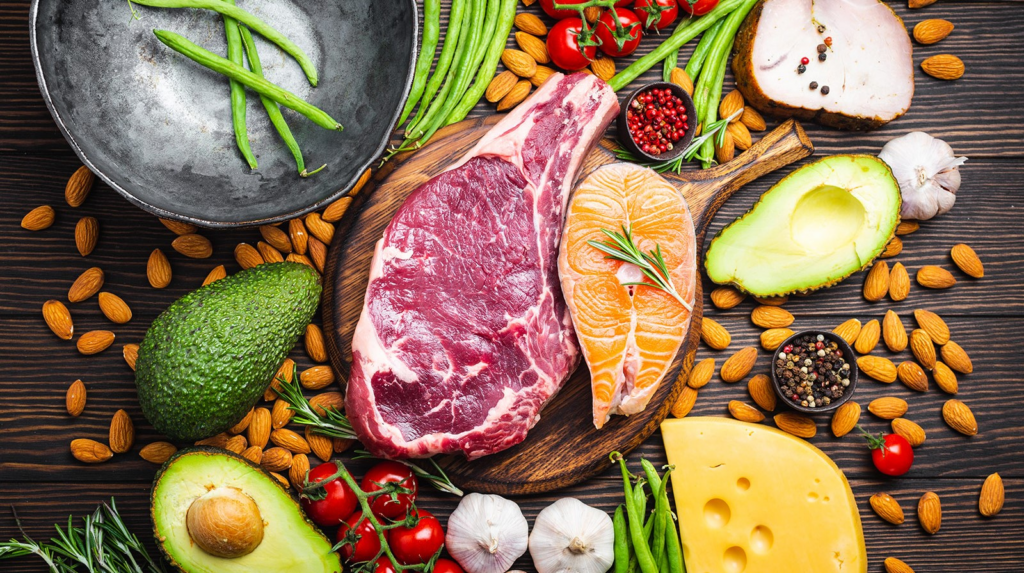Embarking on a ketogenic lifestyle is a commitment to a transformative journey that holds the promise of improved energy, mental clarity, and overall well-being. While the traditional timeline for entering ketosis hovers around 48 hours, the desire to expedite this process is a common aspiration for many keto enthusiasts. In this comprehensive guide, we will unravel invaluable tips to fast-track your entry into ketosis Fast, making the initial days of the ketogenic diet more manageable, enjoyable, and efficient.
From strategic dietary choices to lifestyle adjustments, each tip is designed to pave the way for a smoother transition into ketosis. Whether you’re a newcomer to the ketogenic scene or a seasoned practitioner seeking to enhance your experience, these insights will guide you through the intricacies of getting into ketosis fast.
Join us on this journey as we explore practical and evidence-backed strategies, providing you with the knowledge and tools to optimize your ketogenic experience. From mindful hydration practices to embracing the right fats, we’ll delve into the nuances that can make a significant difference in the effectiveness and sustainability of your ketogenic lifestyle. So, buckle up as we unlock the fast lane to ketosis and empower you to embrace the full spectrum of benefits that this transformative diet has to offer.
Fast-Track Ketosis: Accelerate Your Journey to Health with Proven Tips

Tip 1: Restrict Carbohydrate Intake to Less Than 20g per Day

One of the fundamental principles of the ketogenic diet is drastically reducing your carbohydrate intake. To accelerate the onset of ketosis, aim to consume less than 20 grams of carbs per day. This restriction forces your body to deplete its glycogen stores, signaling the shift to burning fat for energy. Focus on low-carb, high-fat foods such as avocados, nuts, and leafy greens to facilitate this transition.
Tip 2: Hydrate Adequately with 100 Ounces of Water Daily

Proper hydration is crucial for overall health, but it plays a particularly important role in ketogenic adaptation. Drinking around 100 ounces of water per day helps flush out toxins, supports cellular function, and aids in the breakdown of fat molecules. Increased water intake is also associated with more significant weight loss, making it a key component in expediting your journey into ketosis.
Tip 3: Consider Ketosis Validation Products

In the early stages of the ketogenic diet, doubt and uncertainty can be common. Considering ketosis validation products, such as urine test strips or blood ketone meters, can provide tangible evidence that your body is indeed entering ketosis. This validation not only boosts motivation but also reinforces your commitment to the diet during the initial challenging days.
Tip 4: Combat Keto Flu with Preparation and Bacon

The onset of ketosis is often accompanied by symptoms known as the “keto flu,” including dizziness, irritability, and fatigue. Rather than succumbing to panic, be prepared for these temporary discomforts. Reward yourself with keto-friendly foods like bacon when cravings for carbs and sugars arise. Acknowledge that these symptoms are transient, and as long as you stay full and maintain your commitment, they will subside.
Tip 5: Prioritize Salt Intake to Combat Electrolyte Imbalance

On a ketogenic diet, the body tends to expel more water and electrolytes, leading to potential imbalances. To counteract this, prioritize salt intake, preferably from natural sources like sea salt. Adequate sodium replenishment is crucial for preventing feelings of fatigue and discomfort, ensuring a smoother transition into ketosis.
Tip 6: Stay Ahead of Hunger with High-Fat, Low-Carb Foods

Hunger can be a tempting adversary during the initial stages of the ketogenic diet. To prevent succumbing to cravings and maintaining a positive mindset, prioritize high-fat, low-carb snacks. Whenever hunger pangs strike, opt for simple, satisfying options to keep your energy levels stable and your commitment to the diet intact.
Tip 7: Maintain a Moderate Protein Intake

It’s essential to strike the right balance with macronutrient ratios on the ketogenic diet. While moderate protein intake is allowed, excessive protein consumption can hinder ketosis by converting into glucose through a process called gluconeogenesis. Remember that the ketogenic diet is primarily high in fat, low in carbs, and moderate in protein.
Tip 8: Embrace Healthy Fats for Optimal Results

Contrary to common misconceptions, fat is not the enemy on a ketogenic diet; it’s a powerful ally. Embrace healthy fats as a cornerstone of your diet, understanding that consuming fat is integral to triggering your body’s fat-burning mechanisms. “Eat fat to lose fat” should be your guiding motto, emphasizing the importance of incorporating avocados, olive oil, nuts, and fatty fish into your meals.
Tip 9: Prioritize Nutrient-Dense Foods

While maintaining a low-carb, high-fat ratio is key to the ketogenic diet, it’s equally important to focus on nutrient-dense foods. Ensure your meals include a variety of vegetables, berries, and other low-carb, high-nutrient foods to meet your body’s vitamin and mineral requirements. This not only supports overall health but also enhances the sustainability of your ketogenic lifestyle.
Tip 10: Incorporate Intermittent Fasting

Consider incorporating intermittent fasting into your ketogenic journey. Fasting periods can accelerate the depletion of glycogen stores and enhance the body’s transition into ketosis. Start with a simple 12-hour fasting window and gradually extend it based on your comfort level. Intermittent fasting complements the ketogenic diet by promoting fat utilization and supporting weight loss.
Tip 11: Engage in Regular Physical Activity

Exercise is a powerful catalyst for getting into ketosis faster. Physical activity depletes glycogen stores, promoting the utilization of fats for energy. Aim for a combination of cardiovascular exercise and resistance training to maximize the benefits. However, be mindful that excessive exercise during the initial days of the ketogenic diet may exacerbate symptoms of the keto flu, so start gradually and listen to your body.
Tip 12: Optimize Your Sleep Patterns

Quality sleep is often overlooked but is crucial for overall health and successful adaptation to the ketogenic lifestyle. Lack of sleep can increase stress hormones, potentially hindering your body’s ability to enter ketosis. Aim for 7-9 hours of quality sleep per night, establish a consistent sleep schedule, and create a relaxing bedtime routine to support optimal rest.
Tip 13: Consider Exogenous Ketones

Exogenous ketones, in the form of supplements, can be considered to enhance the ketosis process. While not a substitute for a well-formulated ketogenic diet, exogenous ketones can provide an additional source of ketones, potentially easing the transition and reducing symptoms of the keto flu. Consult with a healthcare professional before incorporating exogenous ketones into your routine.
Tip 14: Monitor and Adjust Your Macronutrient Ratios

Individual responses to macronutrient ratios can vary. It’s essential to monitor your dietary intake and adjust your fat, protein, and carbohydrate ratios based on your body’s response. Some people may enter ketosis with higher carb intake, while others may require stricter carb restrictions. Regularly assess your progress and make necessary adjustments to optimize your ketogenic experience.
Tip 15: Stay Consistent and Patient

Achieving and maintaining ketosis is a gradual process that requires consistency and patience. Understand that the initial challenges, such as the keto flu and carb cravings, are temporary and part of the adaptation process. Stay committed to the principles of the ketogenic diet, and over time, your body will become more efficient at utilizing fats for energy.
Conclusion:
Embrace the Journey
Embarking on a ketogenic lifestyle is a transformative journey that extends beyond the mere act of getting into ketosis. It’s about redefining your relationship with food, understanding your body’s unique responses, and prioritizing long-term health. By following these invaluable tips and embracing the journey, you can not only expedite the process of entering ketosis but also set the foundation for a sustainable and fulfilling ketogenic lifestyle. Remember, the key lies in a balanced approach, a positive mindset, and a genuine commitment to your well-being.










[…] Read this blog to learn what ketosis is, how to get your body into Ketosis fast, 15 easy ways to get into ketosis, & the benefits of getting into Ketosis. […]